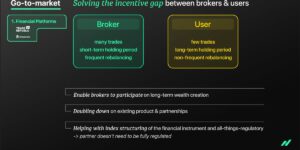In December, powerhouse drugmaker Pfizer — a household name thanks to the COVID-19 vaccine it rolled out during the depths of the pandemic — completed a roughly $43 billion acquisition of Seagen, a biotech firm best known for its research into cancer treatments.
The transaction, announced last March, proved to be far and away the largest M&A deal by volume in global healthcare last year, according to data from deal-tracking firm Dealogic. It was more than double the value of the next-largest deal, a Japanese healthcare merger that clocked in at $22 billion.
One might think that to help broker such a watershed deal, the companies would trot out some of the biggest banks dominating Wall Street’s league tables. Instead, Pfizer turned to the investment bank Guggenheim. And, for its part, Seagen tapped advisors at two boutique firms: Centerview and MTS Health Partners.
The latter has developed a respected reputation as a specialist in the healthcare community but was less familiar to mainstream Wall Street watchers — until now. Closing the deal propelled Andrew Weisenfeld, the MTS Health partner who led the transaction, to a coveted spot on a list of the top 20 US dealmakers of 2023 compiled annually by British data provider MergerLinks. It was Weisenfeld’s first time making the list, which is usually dominated by bulge-bracket bankers from Goldman Sachs and JPMorgan, as well as Morgan Stanley and Bank of America.
MTS Health Partners may be smaller than many megalithic Wall Street institutions, which tend to offer a variety of services from lending to trading, but it’s still packing a punch. Dealogic said the bank advised on at least $53 billion in announced deals last year across nine transactions. On the league tables, that means it placed sixth overall in healthcare, trailing Centerview, Goldman Sachs, Morgan Stanley, Guggenheim, and Bank of America. For Weisenfeld, winning the trust of other clients of Seagen’s caliber means showing why he’s the best healthcare advisor for the job, despite its smaller size.
“It’s all about my experience, my capabilities, and my relationships as opposed to the banks and the banks’ capital and the banks’ equity business, he said in an interview, adding: “Being able to demonstrate that a Seagen or a Chinook or a CTI will hire MTS, despite not having an equity business, is very powerful.”
Now, armed with a coveted spot on the MergerLinks list and predictions of a wave of healthcare deals in 2024, Weisenfeld and his colleagues are drawing up big plans to grow the bank’s market share even further. “We want to be the preeminent healthcare bank. We want to be perceived as the highest-quality provider of strategic advisory services” in the healthcare space, Weisenfeld told BI in a March interview. “We want greater share of prominent transaction advisory work and we think we could broaden our coverage,” he added.
Here’s what Weisenfeld told BI about the bank’s plans to grow, including areas of healthcare it plans to tackle — and what its growth plans mean for hiring.
Weisenfeld joined MTS more than 15 years ago
MTS was founded in 1999, but Weisenfeld joined in early 2008 during the financial crisis. The New York City-based bank — which was created by founder Curtis Lane, a former healthcare banking leader at Bear Stearns — has grown by hiring both dealmakers and execution staffers, including Weisenfeld, who was the bank’s 12th employee.
Back then, the firm counted just two partners, but now boasts a dozen partners, and more than 60 bankers today. Last year, during a healthcare M&A boom that’s expected to continue this year, the bank onboarded 14 new staffers, including the partners, a company spokesperson said. It also brought on 13 new interns.
Healthcare mergers last year comprised nearly 13% of the total value of worldwide deals in 2023, making it the fourth-highest sector for deal making overall (after energy and power, high technology, and industrials), according to data from the London Stock Exchange Group. In addition to Pfizer/Seagen, MTS handled the announced acquisition of EQRx to Revolution Medicines for $1.1 billion; Chinook’s $3.2 billion sale to Novartis; and CTI’s $1.7 billion sale to Swedish Orphan Biovitrum.
Before he came to MTS, Weisenfeld had already developed deep experience in healthcare transacting, having been a managing director within the corporate and investment-banking group at Bank of America, where he helped spearhead life sciences dealmaking for the group. Before that, he was a high-level banker at JPMorgan and Chase Securities. The Seagen deal was the product of a relationship in which Weisenfeld has invested more than two decades of time and energy — he’s been working with the firm since the early 2000s when he was at Chase Securities, and made frequent trips to Seattle, the cancer research company’s headquarters.
Working with Centerview in advising Seagen, he said, allowed the banks to bring different perspectives to the dealmaking process. “When you’re going through such a momentous transaction, having two banks or more bankers’ perspective, I think is good housekeeping,” he said.
Growth plans
MTS Health Partners plans to leverage the tailwinds of the Seagen transaction to bring in other respected dealmakers looking for a change from Wall Street’s culture of bureaucracy and red tape, Weisenfeld explained. “There’s a phrase in banking that deals beget deals. It also helps with recruiting,” he said.
One of the bank’s selling points to incoming talent is that, because it has a smaller number of top-level executives, anyone new who joins will have a greater voice at the table.
Last year, the bank lured several dealmakers from other firms. One was Daun Chung, a new partner who joined from Guggenheim Securities, where he was a senior managing director. His specialties include restructurings and mergers. Another was Ryan Stewart, also now an MTS partner, who formerly served as a partner at the healthcare investment bank Triple Tree, and ran the healthcare tech team at SVB Securities and Solomon Partners.
“We are absolutely in growth mode looking to have high-quality bankers who are capable of generating business off of this platform without all the accoutrements of a big bank,” Weisenfeld continued.
He pointed to the firm’s existing franchises, including healthcare services and biopharma, but said there’s plenty of room to grow. Areas ripe for expansion include niches like healthcare technology and pharmaceutical services. “There’s thousands of biotech companies. There are plenty more companies to be covered than we’re covering now,” he said, adding that the firm might eventually look to cover other industries too.
While there’s no specific number for new hires in mind for 2024, MTS is looking to onboard analysts and partners alike, as well as people in between those ranks, the spokesperson said.
MTS’ planned growth comes as other firms look to make trims in some areas. Citigroup, for its part, has announced that it’s slashing 20,000 roles in a bid to save costs. Goldman Sachs has also made strategic reductions, and industry headhunters say smaller boutique firms are driving much of the hiring activity right now.
Weisenfeld described MTS as “less bureaucratic” and “more nimble” than the average investment bank: “There’s less friction in generation business at a platform like ours than at a big banking institution.” (Indeed, an industry headhunter told BI that MTS’s employees tend to report being satisfied there and are known to stay with the bank for long stretches.)
“We don’t have a balance sheet that the big banks have and we don’t have the equity businesses that the big banks have. So our business is really driven by the ability of our bankers to really tap into their relationships and get banking business,” he said, adding later: “I think it’s about finding the right people at the right time who share the vision of building an independent banking platform.”
Are you an investment banker or Wall Street insider? Contact this reporter. Reed Alexander can be reached via email at ralexander@businessinsider.com, or SMS/the encrypted app Signal at (561) 247-5758.


